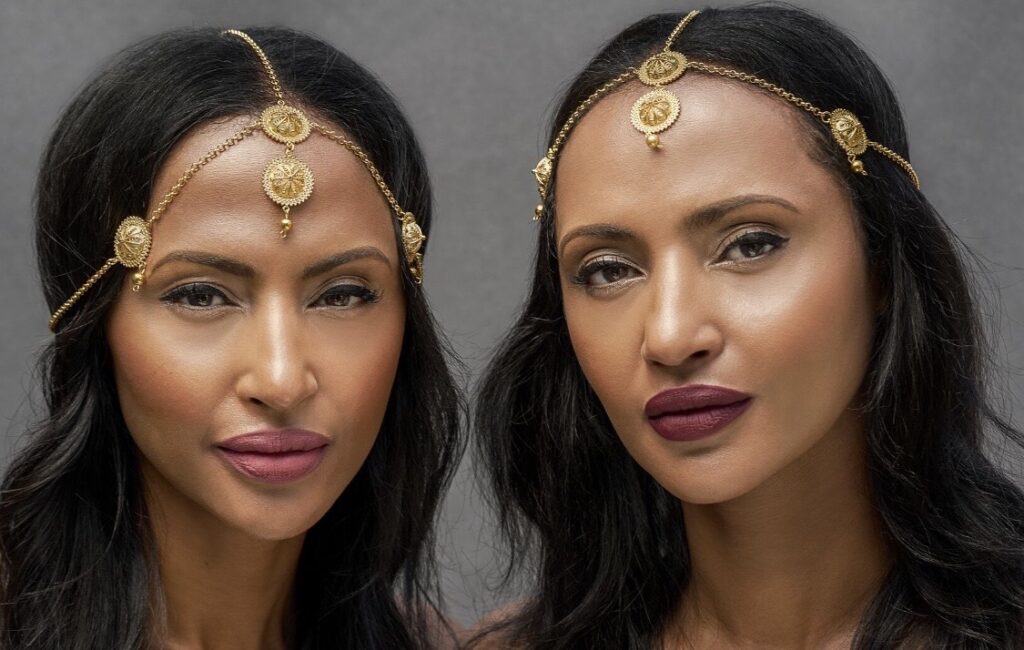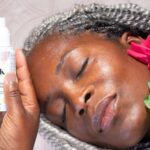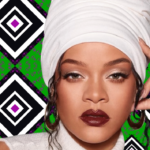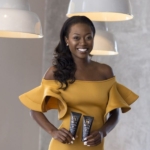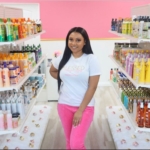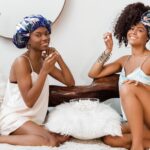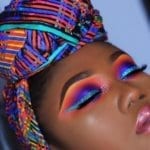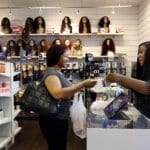Feven and Helena Yohannes are the founders of 241 Cosmetics, a collection of hypoallergenic, cruelty-free, paraben-free lipsticks and lip glosses, eyeshadows, and eyeliners.
During the civil war between Eritrea and Ethiopia in the early 1980s, their parents fled to Sudan to find safety.
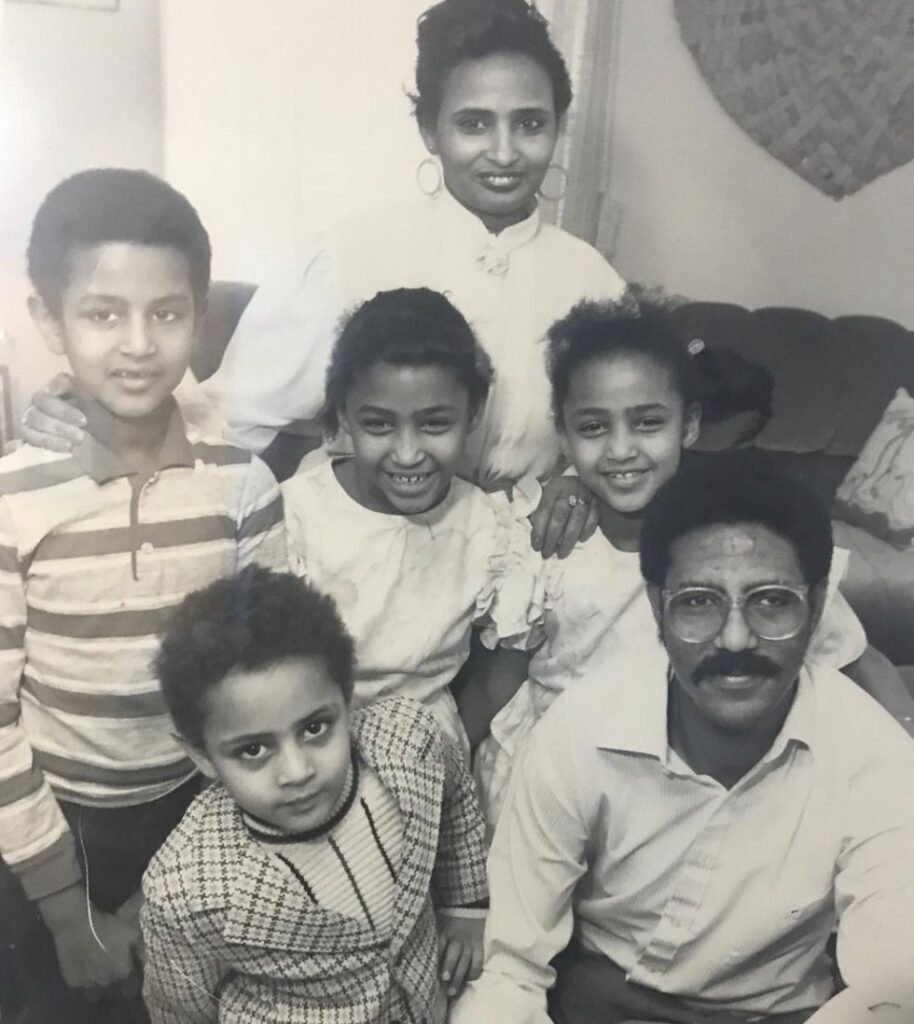
The family moved to upstate New York in 1985, when Feven and Helena were four years old, after winning the green card lottery with support from Rochester’s Third Presbyterian Church.
We caught up with them to find out more about their fascinating story and their foray into entrepreneurship.
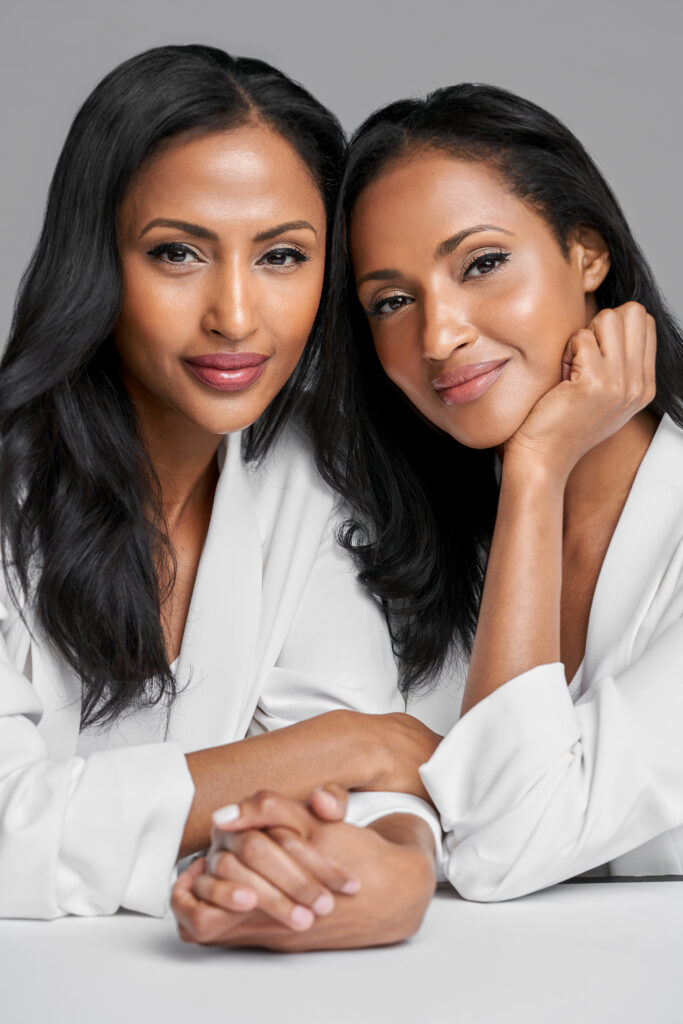
What is the inspiration behind 241 Cosmetics?
When we started looking more closely at the beauty industry, we noticed a common theme: major brands were profiting from manipulating consumers with unrealistic airbrushed photos and encouraging overdone makeup. The subtext was always, “you need this product” and never “you deserve this.” We like to think that every product is a reminder of the beauty that currently exists.
To us, makeup is a meditative process. The stories we tell ourselves are powerful. The name and descriptions behind each product was intentional because words are magic if we use them in the right way. Names like: “Role Model”, “Honor”, “Class Act” are a practice in daily affirmations. We are not just here to sell to confidence – we want to instill confidence as well.
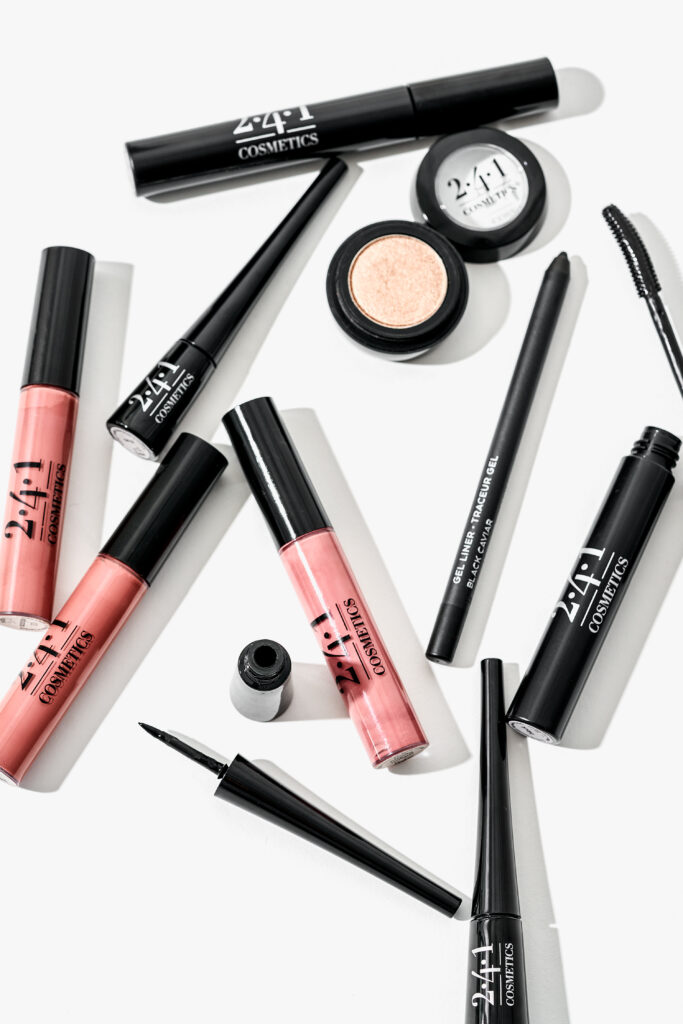
How did your upbringing influence who you both are as entrepreneurs?
Our father was a freedom fighter and leader in the Eritrean-Ethiopian war, who would later be exiled from his own country as he foresaw and spoke up against an inevitable dictatorship.
Our father, who lost half of his vision in a landmine explosion, and our mother, who was four weeks pregnant with our older brother Thomas, walked from Asmara, Eritrea to a refugee camp in Gibra, Sudan. They did this with no choice, and no money owning only the clothes on their back.
We once asked our father, “What did that feel like to walk from Eritrea to Sudan?” He replied with a smile: “It’s like walking from LA to San Francisco. It took us a few months but we got there.”
Two years after they arrived at the refugee camp, during one of the worst famines in global history, our mother gave birth to us in a hut made of mud and grass as our father stood outside patiently waiting for what would be the shock of his life. With no technology to discern the gender of their baby, they presumed since our mother stood 5 feet tall and her baby bump looked really big, they were having a really big boy.
As our parents looked around the desolate refugee camp, it became clear it was no place to raise a family. Poor with nothing more than faith, our mother decided to apply for the American Diversity Visa Lottery Program. It took another year, but to their surprise we were selected, leaving our extended family behind, leaving everything we had known, to move to Rochester, New York, a place in America with a lot of snow.
When we arrived in Rochester, we had to learn a new language and embrace a completely different culture. The first few years in America were hard to put it simply. We had a front row seat to our parent’s struggle. They did their best to shield us from the fear and frustration of raising four children with little money in an unfamiliar country, but we could feel it.
Our father worked as a janitor at the church that would later sponsor us and our mother became the housekeeper. We would spend nights with them, watching them clean toilets, and mop floors, breaking only to finish their schoolwork as they both attended English classes at a local community college.
Our father would later graduate with a Master’s in Public Administration and our mother would later become a nurse. Seeing our parent’s path from struggle to triumph completely influenced us as people and as founders. They instilled the fundamental belief you lead with purpose, never forgetting your roots, and always in service to others. The experiences and lessons they instilled in us as little twin girls would later play a pivotal role in our framework and brand ethos.
As we got older, we noticed the people making beauty products for women didn’t do it from the lens of how we as black women felt. Though the industry has made some progress, there are founders like us who have been overlooked and underfunded. Our voices have not been accounted for. Inclusion should not be an afterthought; it’s actually good business.
So when you ask “How did your upbringing influence who you both are as entrepreneurs?” Thriving is in our bloodline. We are resilient and solution based founders with a deep appreciation for people. We trust the process and we are affirmed in the belief that service to others is the greatest reward. For us, makeup is an instrument in our service to humanity.
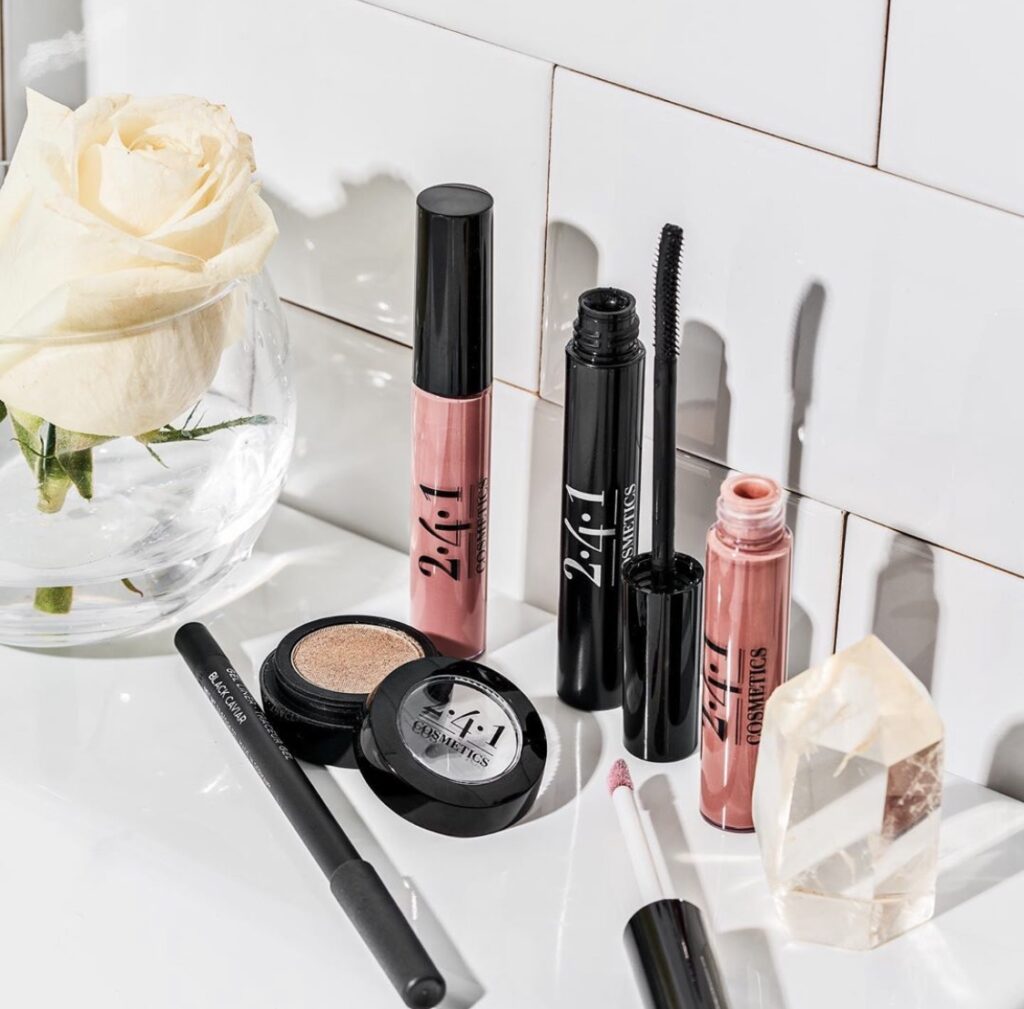
Describe your individual personalities. In what ways do you leverage the similarities and differences in business?
That’s an interesting question especially since we are identical twins and we built a company with the idea that you can embrace all facets of your personality and positive attributes hence: 2.4.1.
We definitely have similar tastes in music, art, beauty, home decor, and fashion. Though Feven opts for more structure and neutral colors, while Helena gravitates towards more vibrant colors with clean lines.
We both consider ourselves creative in different ways. Feven is really involved with all the visuals on our site and Helena is great at giving direction and making sure the company is running as smoothly.
One example before we launched Helena worked closely with the developers to build the site while Feven worked closely with the product photographers.
If you could both master any business skill overnight, what would it be?
I think we can both answer this the same way: we wish we were better at excel spreadsheets and crunching numbers.
What are your future plans for 241 Cosmetics?
Thank you for asking! We have so many plans for our company: expanding our product line, and a storefront in Los Angeles but ultimately we have our eye on Africa. We believe Africa is the future.
So we want to build storefronts in Ghana, Nigeria, South Africa, Ethiopia, and of course our beloved Eritrea.
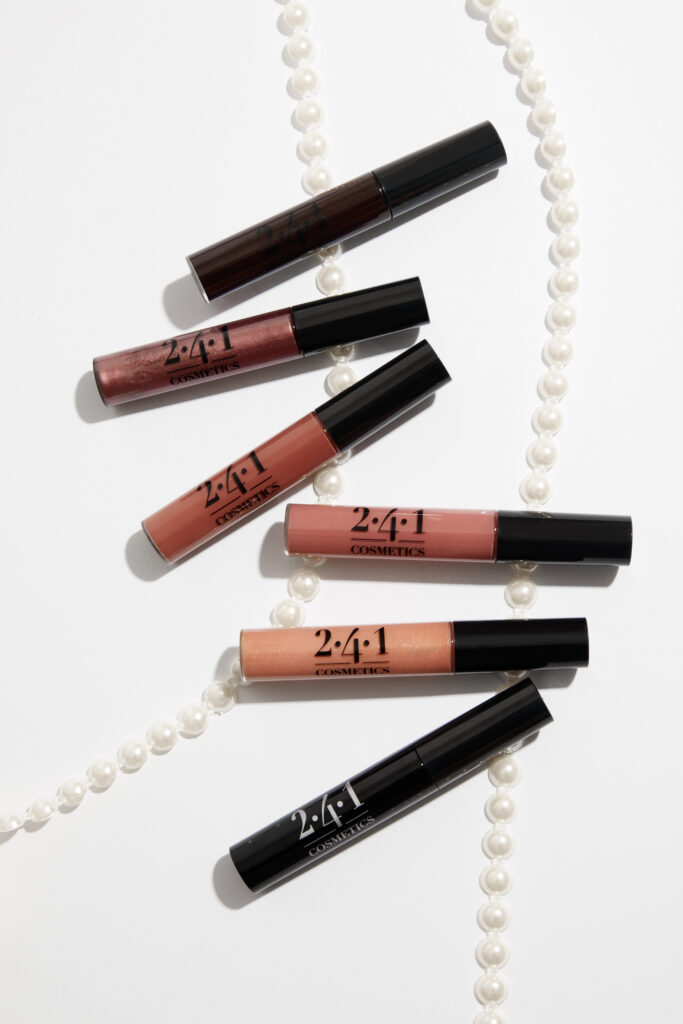
What advice do you have for other beauty brand founders?
Feven: Don’t be afraid to start off small and make mistakes along the way. You actually learn more from your mistakes than your wins! So work hard, hope for the best, and WING IT!
Helena: Energy is reciprocal! You get what you give in life, so be kind to yourself and to others on your entrepreneurial journey. Stay focused and let faith be your North Star.
– Tony O. Lawson
Want to invest in Black founders? Please fill out this short form.

